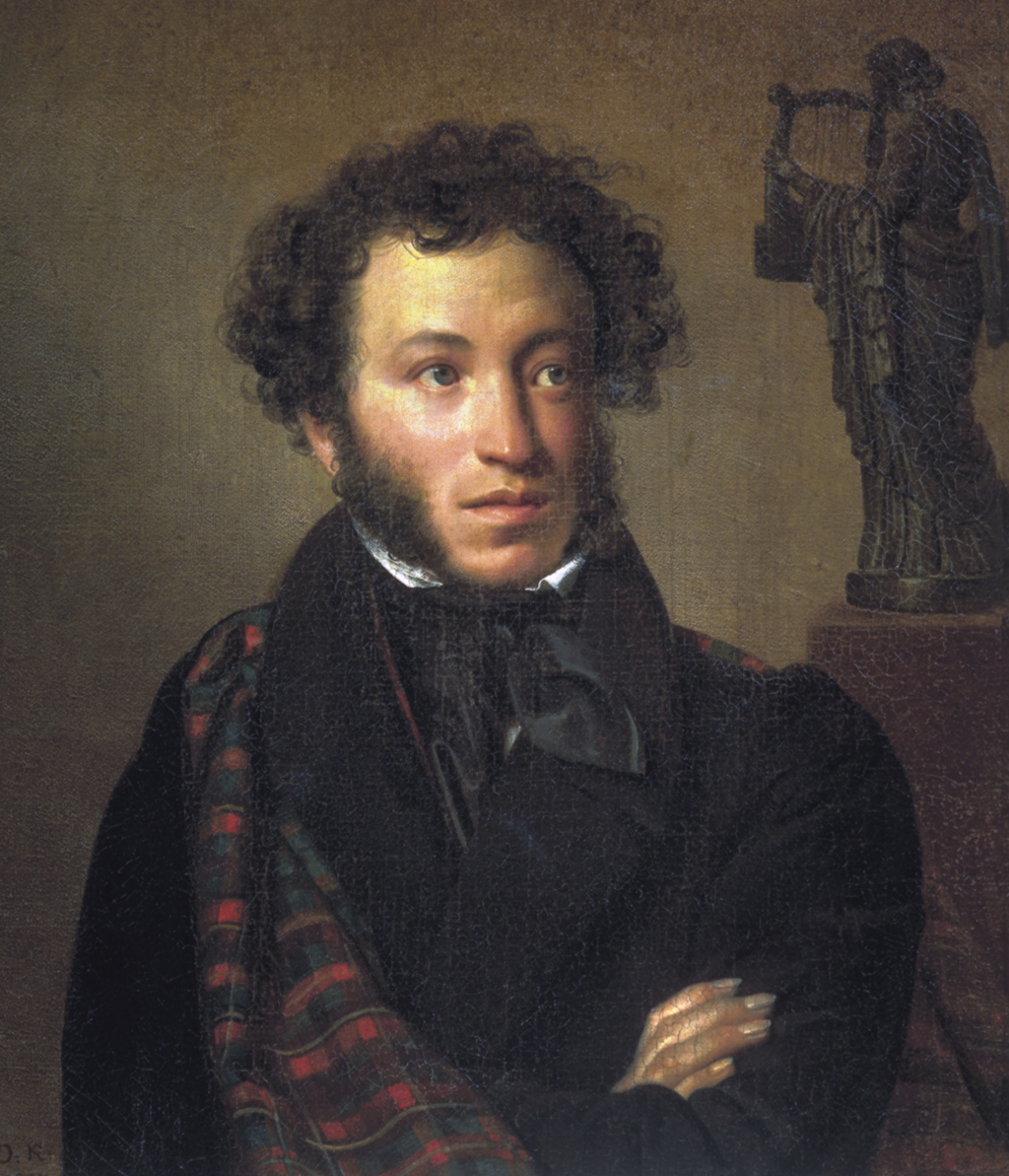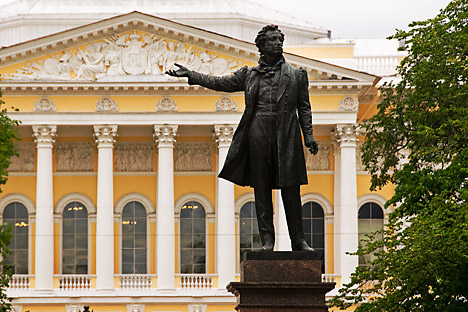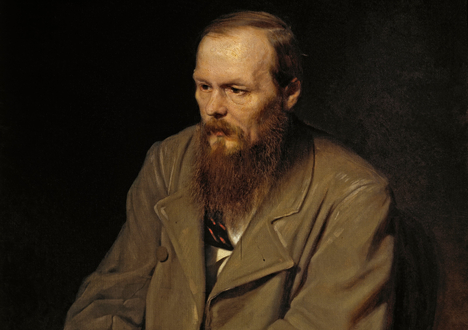A tribute to Alexander Pushkin

Orest Kiprensky. Portrait of Alexander Pushkin (1827)
The Russian language is often unfairly categorized as being ‘rough’ by a large number of foreigners. Even native speakers tend to be harsh on the language and make unfair comparisons between Russian and romance languages such as Italian.
Russian can be as sweet or rough as French depending on who speaks it and what kind of language and tones he or she uses. For those who want to hear Russian sounding at its beautiful best, I recommend listening to a recital of Alexander Pushkin’s poems.
The poetry brings out the beauty of Russia’s vast open spaces and its colorful seasons. It shows the depth of the Russian soul and how incredibly capable of love, ‘a rough-looking’ Russian man is.
Pushkin, the great-grandson of an African slave who rose to become a general, is Russia’s most celebrated poet and the founder of modern Russian literature.
His genius was recognized early on with his first poem being published when Pushkin was just 15.
Almost 180 years after his death, Pushkin’s great works such as his play ‘Boris Godunov,’ and ‘Eugene Onegin,’ a novel in verse, remain popular around the world. Even his works of prose, which are often overlooked, have enriched world literature.
It’s his poetry though that is closest to the hearts and minds of Russians. The best way to impress a Russian romantic interest is to learn the wonderful poem ‘Я вас любил (I loved you) in Russian. Published in 1830, the poem looks at a theme that is a part of just about everyone’s life: lost love.
For the benefit of readers who don’t understand Russian, here is an English translation of the poem:
“I loved you once: perhaps that love has yet
To die down thoroughly within my soul;
But let it not dismay you any longer;
I have no wish to cause you any sorrow.
I loved you wordlessly, without a hope,
By shyness tortured, or by jealousy.
I loved you with such tenderness and candor
And pray God grants you to be loved that way again.”
This poem showed how much Pushkin respected women and how he understood that the greatest test of love is to wish the best for a person even if she is lost.
Born in the summer, Pushkin was very much an autumn person. It was the season of colors that inspired the poet the most, as he wrote in the following poem:
“People have harsh words for these days of autumn,
but, reader, they are dear to me, I love
their unassuming light, their quiet beauty.
Autumn attracts me like a neglected girl
among her sisters. And, to be quite honest,
she is the only one that warms my heart.
She has her good points; whimsically dreaming
and free from vanity, I find her charms appealing.”
Pushkin’s life was in many ways like the Russian autumn: beautiful, full of life and color, and tragically brief.
While he may have been able to let go of any past loves, for his soul mate Natalya Goncharova, he was ready to pay the ultimate prize. Pushkin married Goncharova in 1830 and the couple had four children.
Less than seven years after the wedding, Pushkin challenged French Baron George Dantes to a gun duel, as the latter was courting his wife. On a cold February morning, the poet was wounded in the duel and succumbed to his injuries. At the tender age of 37, Russia’s most celebrated poet passed away. It is widely believed that tens of thousands of people attended the funeral.
A strong legacy
Pushkin’s works were left unscathed by the different regimes that were at the helm of power. Even the Soviets found his poetry, prose and plays harmless and did not make an effort to suppress the circulation of his works across the country. On the contrary, the USSR enthusiastically encouraged the translation of Pushkin’s works, ensuring that reached countries such as India.
In 2010, the Russian government declared June 6, his birthday, as the Russian Language Day. I have personally been witness to some of the programs organized on this occasion outside Russia. It’s fitting that the birthday of a man who enriched and beautified Russian is being celebrated as the day of the language.
It was also in 2010 that the United Nations declared June 6 as International Pushkin Day.
Whether it was his heart-warming fairy tales that are treasured by adults and children alike or his romantic poems or his masterpieces such as ‘Eugene Onegin,’ Pushkin’s works reach out to just about everyone.
One Pushkin poem instantly makes me feel good even when I am in the lowest of spirits - Если жизнь тебя обманет... (If life deceives you)
“If this life deceives you sometimes,
Don't be sad or mad at it!
On a gloomy day, submit:
Trust - fair day will come, why grieve you?
Heart lives in the future, so
What if gloom pervade the present?
All is fleeting, all will go;
What is gone will then be pleasant.”
Happy Birthday, Alexander Sergeyevich!
All rights reserved by Rossiyskaya Gazeta.
Subscribe
to our newsletter!
Get the week's best stories straight to your inbox


